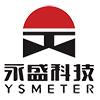A control valve plays a vital role in optimizing the system performance by maintaining the pressure of liquids and gases as well as regulating the flow rate through the pipeline. By directly controlling the flow of fluid, control valves provide the facility of automatic operation and reduce wastage during the industrial manufacturing processes. Their installation is also quite easy, and they serve as the easiest solution for safe fluid transportation.
Now let’s look at the requirements of flow control in different industries and the significance of a control valve.

Requirements of Flow Control in Different Industries
There are various use cases of control valves for flow measurement and control.
1. Semiconductor manufacturing industry
In the semiconductor industry, scientists and manufacturers use expensive chemicals. Moreover, they also have strict purity requirements. At this stage, the engineers and scientists make the use of control valves for the precise and accurate measurement of the amount of chemical that should flow for the best results. The overuse of chemicals not only makes it difficult to achieve the desired results but also causes wastage of resources.
2. Fuel industry
In the fuel industry, control valves are used for fuel consumption monitoring in which the low flow of fuel allows the engineers to determine the fuel and water combination. In this way, they can estimate the power and energy output and efficiency of the system.
3. Laboratory
In the laboratories, researchers and quality control engineers use control valves to ensure the accurate flow of chemicals or materials for experimentation or monitoring purposes.
Challenges of Flow Control in Different Industries
Different industries face various challenges that may occur due to improper flow control.
1. Chemical industry
In the chemical industry, flow control is mandatory because the change in quantity or supply of the chemical can fail the whole experimentation.
2. Oil and gas industry
In the oil and gas industry, the maintenance of proper flow and temperature of the fluids is possible with the installation of proper control valves that regulate the quantity of liquid that should pass through the pipeline.
3. Food industry
In the food industry, the measurement of specific fluid amounts is a big challenge. Moreover, monitoring usage of a fluid as well as achieving the consistency of the product is only possible when the flow of the fluid is properly controlled using control valves and other advanced technology. It will not only enhance the yield but also reduce the levels of wastage.
How Do Control Valves work in Different Industries?
- Control valves are used in metal Industries where they are used to control the flow of various chemicals and protect the outer lining to prevent the risk of corrosion or cavitation damage.
- In large gas pipelines, control valves reduce maintenance requirements by improving the precision of the system and reducing the chances of leakages.
- Control valves often can automatically control the flow of fluid and withstand water pressure.
The Different Types of Control Valves and Their Uses
There are various types of control valves. Each of the types is specialized to the particular industrial tasks.
1. Butterfly type control valve
This is the cost-effective butterfly-shaped eccentric valves that improve the accuracy of flow control in various control water treatment plans by withstanding the water pressure.
2. Angle type control valve
These are the cage-structured specialized valves that have inlets and outlets perpendicular to each other. They are most commonly used for heater blowdown and boiler feed water services.
3. Diaphragm type control valves
This valve has a diaphragm as the major component, which has salary applications and successfully controls the movement of solid materials as well. It is widely used in metal Industries.
4. Ball-type control valve
These are the most durable cost for teeth and high-performance valves that are used in various industries for controlling the sensitivity of the fluid and high precision of flow. Their major applications are seen in chemical and Metal Industries.
Other types of control valves include self-operated pressure control valves and vacuum valves.
Advantages of Using Control Valve
- Play a vital role in controlling fluid flow pressure, temperature, and fluid level.
- Directly control the opening and closing of the fluid by providing an automatic operation facility.
- Installation is quite easy.
- Reduce wastage of resources.
- Prevent clogging during the fluid flow.
- Improve financial returns of the companies by giving rise to accurate products.
Conclusion
From the above discussion, it is evident that an automatic control valve is the ultimate flow control solution.
If you are looking for ultimate flow control solutions and need help with fluid transportation, we recommend you take the fluid control services of ysmeter.
Ysmeter makes fluid transportation safer. We have a wide range of control valves that efficiently perform the fluid control functions efficiently in various industries, including the coal chemical industry, metallurgical industry, chemical fiber industry, fine chemical industry, electrochemical industry, etc.
If you also want to enhance your industrial production and ensure high efficiency and a high level of product performance by proceeding with fluid control options, get in touch with ysmeter today.

